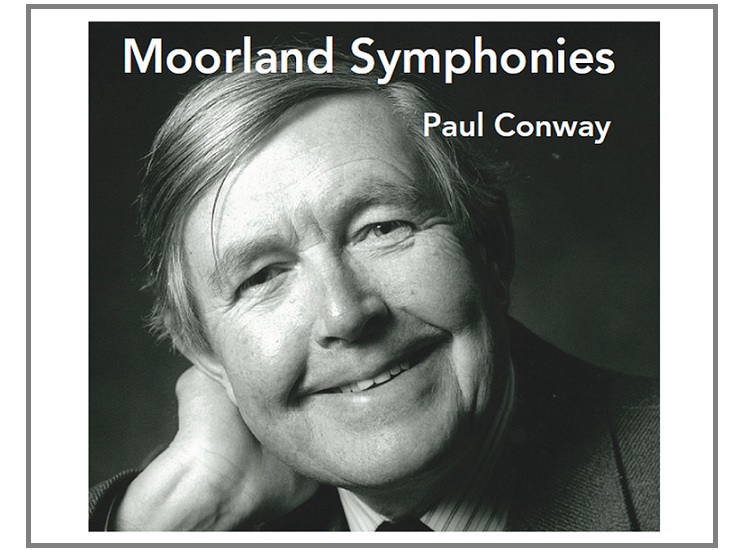
26: Arthur Butterworth (1923 – 2014)
In his recently published book ‘Moorland Symphonies – An Introduction to the Music of Arthur Butterworth’, author Paul Conway states that the composer had little interest “in the pushing of boundaries and pursuance of novelty for its own sake”.
Despite writing over 150 works during his long career - including seven symphonies and a varied body of ensemble, chamber and instrumental pieces, many of note for the brass band medium, Conway goes on to state that, “he showed remarkable singlemindedness in avoiding the distractions of passing trends”.
Almost a century after his birth, it is fitting summation of a composer who remains an intangible enigma.
Lowry painting
Born in New Moston, Manchester on the 4th August 1923 amid what he himself called, “the very essence of a Lowry painting”, Arthur Eckersley Butterworth’s early passion was for trains, although it was the sound of a brass band in a park near to his paternal grandparents home that was to trigger his musical inquisitiveness.
Arthur Eckersley Butterworth’s early passion was for trains, although it was the sound of a brass band in a park near to his paternal grandparents home that was to trigger his musical inquisitiveness.
At the age of 10 he joined St Chad’s Church brass band – learning the trombone on which he delighted his mother by playing her favourite hymn tune ‘Richmond’. The band itself though rather perplexed him – a recurring thread of puzzlement and occasional frustration towards the medium that was to last his lifetime.
“As I left the bandroom and walked the few yards back home,” he later recalled, “I often thought the band sounded not quite as good as I imagined when I was absorbed in playing in it.”
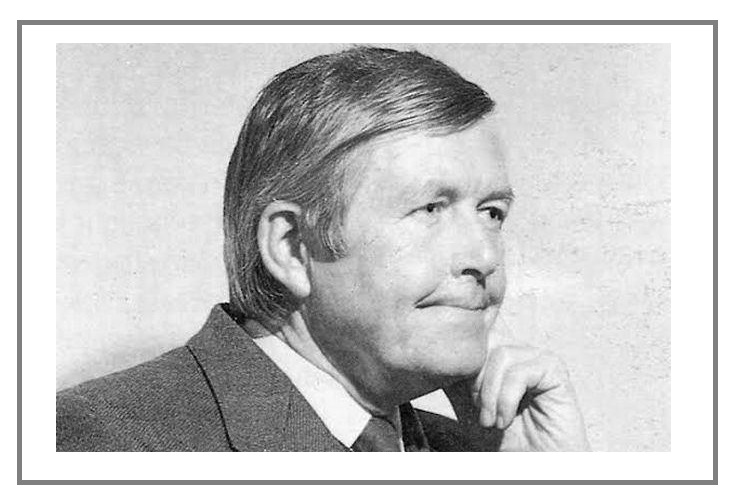
Fortuitous accident
A fortuitous accident with his trombone slide and a tram track led him to take up the cornet, whilst his fascination at the way the music he played was written led to his father buying him a sixpence ‘Marvel’ manuscript book on which he started writing his fledgling compositional ideas.
A perceptive school music teacher, Dr Percy Penrose soon noticed his talent and although his piano playing remained frustratingly poor (something Butterworth admitted never improved) his mastery of counterpoint and harmony saw him pass the School Certificate in Music with a 99% mark.
A perceptive school music teacher, Dr Percy Penrose soon noticed his talent and although his piano playing remained frustratingly poor (something Butterworth admitted never improved) his mastery of counterpoint and harmony saw him pass the School Certificate in Music with a 99% mark.
However, whilst his cornet playing blossomed alongside a widening musical outlook (he went to his first orchestral concert aged 13) academically he lagged behind fellow pupils. A somewhat lonely, isolated child, he wrote the music to a school pantomime only for it to be unceremoniously rejected.
A visit with his father to the 1937 September Belle Vue contest was a revelation though – and the influence of hearing Brahms ‘Academic Overture’ played by Besses o’ th’ Barn Band was to be a seminal moment.
Scholarship
In 1939 he won the Alexander Owen Scholarship, later admitting that it was perhaps not for his performance of the solo ‘Jenny Wren’, but “as a promising conductor, getting the sight reading and time beating better than any of the others and coming way ahead in the written paper in which I gained 100/100.”
Soon his youthful compositions flowed – a cornet solo entitled, ‘Beatrice’ and marches such as ‘On the Poop Deck’ and ‘Silver Cloud’. His first ‘major’ work entitled ‘Magoeba’, inspired he later said for no other reason than he had been reading about South Africa, was played by Wingates Temperance in a concert attended by Sir Granville Bantock.
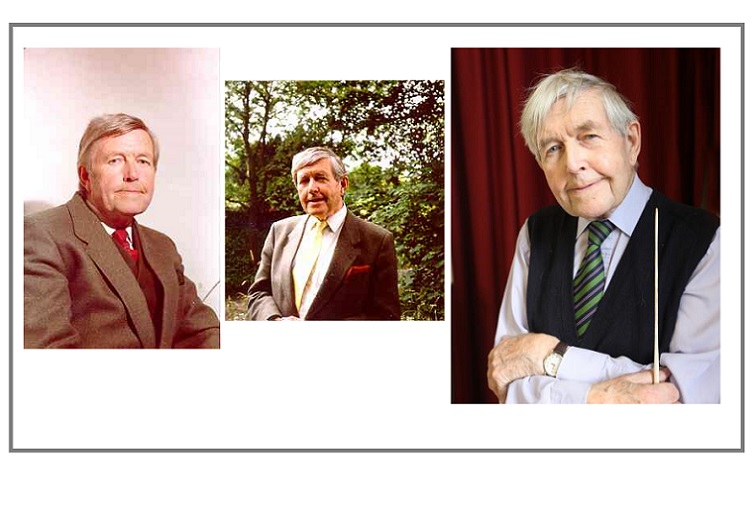
Not the most cooperative
His working life started in a solicitor’s office but, in 1942, just after passing the Brass Band College of Music examination in conducting, he was called up. He had hoped to join a regimental band, but as he was passed ‘A1’ fit he was posted to the Corps of the Royal Engineers.
Whilst other young men and women revelled in the American dance music of the time, Butterworth was less than impressed, and despite being asked by his Army Captain to play in his unit dance band, he refused – his army record marked that he was ’not the most cooperative of individuals’.
His thoughtful father sent him his cornet and by the end of the War (where he served in North Africa, Sicily and France) he found himself in Germany.
Whilst other young men and women revelled in the American dance music of the time, Butterworth was less than impressed, and despite being asked by his Army Captain to play in his unit dance band, he refused – his army record marked that he was ’not the most cooperative of individuals’.
Sibelius and Simpson
What did impress him through was the romantic German school of music led by Brahms, but also Schumann, Nielsen and above all, Sibelius. In the UK he admired Bax and later Robert Simpson.
he found it “dispiriting in the extreme – a backwater of mediocrity and blinkered musicianship”.
Looking back, he said: “That was a real eye- and ear-opener for me. When I did eventually come out of the army, although I went back to Besses I called it a day after only a month", adding that he found it “dispiriting in the extreme – a backwater of mediocrity and blinkered musicianship”.
In the Autumn of 1947 Butterworth entered the Royal Manchester College of Music (now the Royal Northern College of Music). There he came under the influence of composition tutor Richard Hall, whilst also studying trumpet and conducting. As opportunities for orchestral playing were limited, he left a year early and in 1949 began his professional trumpet playing career with the Scottish National Orchestra in Glasgow.
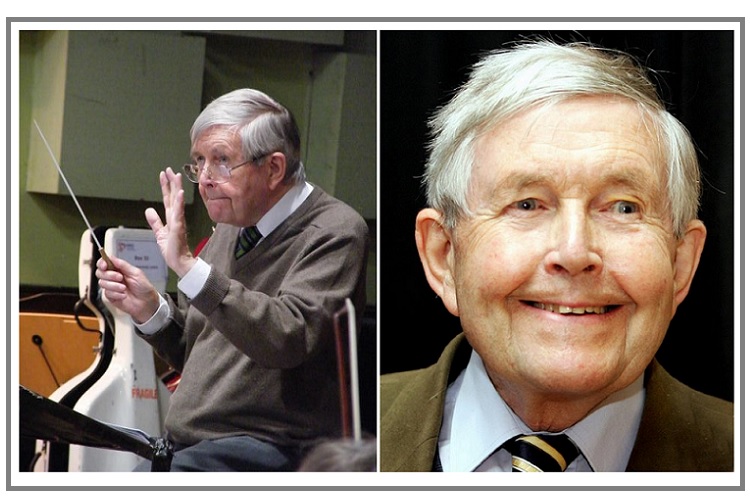
Compositional craft
During this period of time he developed his compositional craft, with works such as his ‘Oboe Sonata’ and ‘Four Nocturnal Songs’, ‘Suite for String Orchestra’ and ‘Sinfonietta’. In January 1955 he returned to Manchester to join the trumpet section of the Halle Orchestra under Sir John Barbirolli.
His reconnection with the brass band movement had come a year earlier when he wrote his folk-song inspired ‘Exmoor Suite’ – indebted much to Vaughan Williams than anything else in style.
Disappointed by the rejection he withdrew it from publication. It did not resurface until 2004 when his friend Dave Richards persuaded him to get it performed again.
It was intended for a BBC competition held to mark the passing of the great Fred Mortimer but lost out to Elgar Howarth’s ‘Mosaic’. Disappointed by the rejection he withdrew it from publication. It did not resurface until 2004 when his friend Dave Richards persuaded him to get it performed again.
That compositional set-back seemed to signal that he would be lost to the brass band movement once again – something that would have perhaps been permanent if he had been able to build on the critical acclaim that that came with the premiere of his ‘First Symphony’ at the Cheltenham Festival in 1957.
It was a work that according to The Times special correspondent, ‘…has made the strongest impact… a creative talent of which more will be heard in the future.’
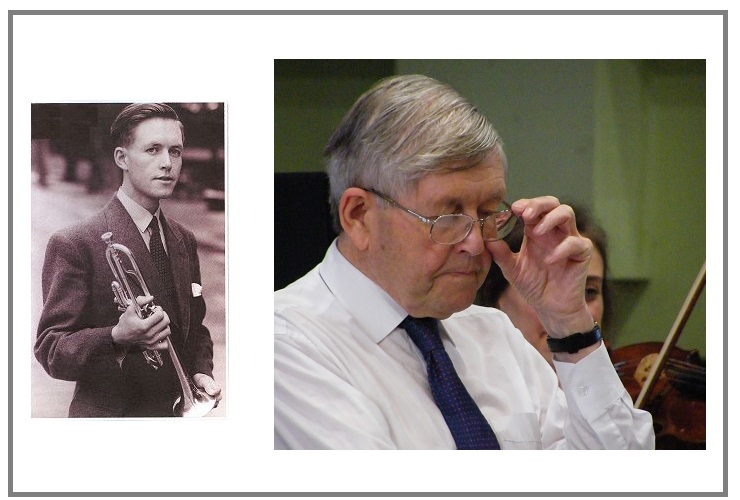
Brass band return
It was not to be, although by 1962, Butterworth was determined to find more time for composition and joined the West Riding Education Department. He was also appointed associate conductor of the Huddersfield Philharmonic Society - one of the region's finest amateur orchestras, becoming conductor two years later and remaining until 1994.
He did however return to write for the brass band medium – although his first original opus ‘A Dales Suite’, (Op. 24a) subtitled ‘Embsay’ from 1962, and ‘The Path Across the Moor’ (Op.17b) from 1964 (originally written for orchestra in 1959) did not really signal a full-blown reconciliation.
More interestingly was his brass band score to the television documentary ‘The Warmongers’ (1966) about the Salvation Army, written in the manner of Kurt Weil, and ‘Three Impressions for Brass’ (Op 36) written in 1968 for the Northumberland Youth Band with some of material for the opening ‘Wylam Colliery’ movement coming from one of its episodes.
On off
Two years later, another indication of the 'on-off' connection to brass bands became apparent when Butterworth wrote an article for the Music in Education journal entitled ‘The Brass Band – A Cloth Cap Joke?’
Soon his “utter disdain” become a deep-seated love of its ethos to embrace better music and new ideas, although he was never to become a convert to the contesting environment.
It was an acidic appraisal that was not improved on by his first encounter with the National Youth Brass Band of Great Britain in 1973, after which he vowed never to go back. Thanks to the persuasive qualities of Geoffrey Brand he did though.
Soon his “utter disdain” become a deep-seated love of its ethos to embrace better music and new ideas, although he was never to become a convert to the contesting environment.
In 1975 he followed Brand to become its third conductor/musical advisor – a post he proudly held until 1981, further embedding radical changes to the way they approached its music making.
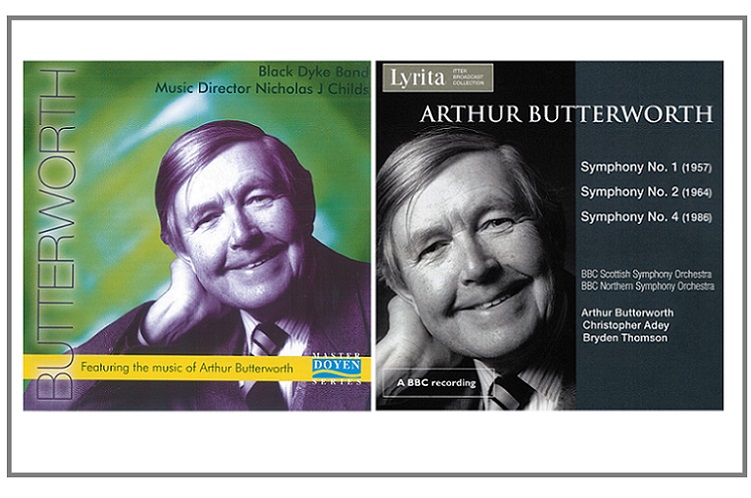
Major works
For him that included shorter compositions such as his overture ‘Blenheim’ for the Oxfordshire Youth Band, ‘Winter Music’ and ‘Nightflight’ (for Besses) as well as major works of rich artistic substance.
‘Caliban’ was written for Brighouse & Rastrick in 1978 (later used at the European Brass Band Championships), followed by ‘Odin’ (written for Black Dyke and later used at the National Championships), ‘Maoriana’, ‘Paean’ (for Desford Band), and ‘Passacagila on a Theme of Brahms’.
“Arthur Butterworth was a composer who knew instinctively what he was trying to create, as proven by the individuality and integrity of his writing”.
His ’Concerto alla Veneziana’ , 'Ballade' and his immense ‘Mancunians for large orchestra and brass band’ showed his scope and command of proportion great and small, whilst arguably his arrangements of ‘Introduction and Allegro for Strings’ (Elgar Op.47) and ‘Variations on a theme of Handel’ (Brahms Op. 24) were to become even greater monuments to his craftsmanship for the medium.
New audiences
Meanwhile, Butterworth said that he now found writing brass band scores, “a stimulating challenge, both technically and more importantly in the sense of pure musical invention and inspiration.”
In his later years his output still flowed – although not for brass bands. His final trio of symphonies gained critical success, his works finding a new and appreciative audience.
He was appointed MBE in 1995 and continued conducting until a year before his death at the age of 91 at his home in Embsay on 20th November 2014. Tributes came from across the musical world.
As Paul Conway said in his book ‘Moorland Symphonies’; “Arthur Butterworth was a composer who knew instinctively what he was trying to create, as proven by the individuality and integrity of his writing”.
Perhaps we can now fully appreciate the remarkable substance behind the enigma.
Tim Mutum
With thanks to Paul Conway and Dave Richards
Moorland Symphonies — An Introduction to the Music of Arthur Butterworth
Author: Paul Conway
Lyrita Press (165 pages)
Available from 1st July
https://www.wyastone.co.uk/moorland-symphonies-an-introduction-to-the-music-of-arthur-butterworth-by-paul-conway-paperback-book.html
CD recordings:
Arthur Butterworth Symphonies Nos 1,2 & 4
https://www.wyastone.co.uk/arthur-butterworth-symphonies-nos-1-2-4.html
Black Dyke Band: Arthur Butterworth
https://www.worldofbrass.com/22007
4BR Hall of Fame: No.1: Jack Atherton
https://www.4barsrest.com/articles/2019/1832.asp
4BR Hall of Fame: No.2: Albert Baile
https://www.4barsrest.com/articles/2019/1836.asp
4BR Hall of Fame: No.3: Stanley Boddington
https://www.4barsrest.com/articles/2019/1842.asp
4BR Hall of Fame: No.4: Bram Gay
https://www.4barsrest.com/articles/2020/1848.asp
4BR Hall of Fame: No.5: Leonard Lamb
https://www.4barsrest.com/articles/2020/1855.asp
4BR Hall of Fame: No.6: Arthur Stender
https://www.4barsrest.com/articles/2020/1866.asp
4BR Hall of Fame: No.7: Violet Brand
https://www.4barsrest.com/articles/2020/1871.asp
4BR Hall of Fame: No.8: Eric Bravington
https://www.4barsrest.com/articles/2020/1875.asp
4BR Hall of Fame: No.9: Norman Ashcroft
https://www.4barsrest.com/articles/2020/1879.asp
4BR Hall of Fame: No.10: Albert Chappell
https://www.4barsrest.com/articles/2020/1884.asp
4BR Hall of Fame: No.11: Betty Anderson
https://www.4barsrest.com/articles/2020/1889.asp
4BR Hall of Fame: No.12: Trevor Walmsley DFC
https://www.4barsrest.com/articles/2020/1897.asp
4BR Hall of Fame: No.13: Percy Code
https://www.4barsrest.com/articles/2020/1903.asp
4BR Hall of Fame: No.14: George Thompson MBE
https://www.4barsrest.com/articles/2020/1909.asp
4BR Hall of Fame: No.15: Willie Lang
https://www.4barsrest.com/articles/2020/1914.asp
4BR Hall of Fame: No.16: James Scott
https://www.4barsrest.com/articles/2021/1916.asp
4BR Hall of Fame: No.17: Jack Mackintosh
https://www.4barsrest.com/articles/2021/1922.asp
4BR Hall of Fame: No.18: Teddy Gray
https://www.4barsrest.com/articles/2021/1928.asp
4BR Hall of Fame: No.19: Rowland Jones
https://www.4barsrest.com/articles/2021/1932.asp
4BR Hall of Fame: No.20: Helen Perkin
https://www.4barsrest.com/articles/2021/1944.asp
4BR Hall of Fame: No.21: Lt Col Cecil H Jaeger OBE
https://www.4barsrest.com/articles/2021/1954.asp
4BR Hall of Fame: No.22: Alex Mortimer
https://www.4barsrest.com/articles/2021/1966.asp
4BR Hall of Fame: No.23: Henry Geehl
https://4barsrest.com/articles/2022/1987.asp
4BR Hall of Fame: No.24: Geoffrey Brand
https://www.4barsrest.com/articles/2023/1996.asp
4BR Hall of Fame: No.25: Maurice Murphy
https://www.4barsrest.com/articles/2023/2002.asp













